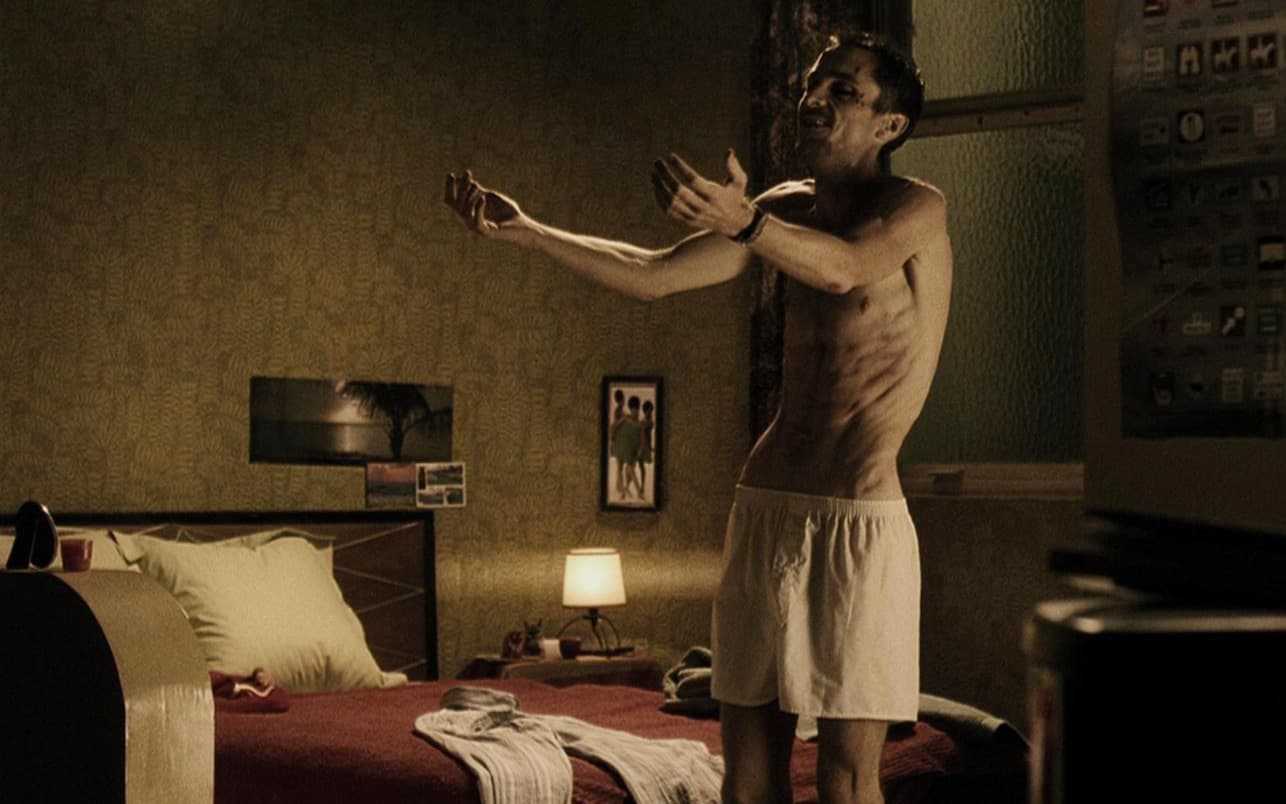The Machinist by Brad Anderson (Review)

When the buzz started surfacing about The Machinist, the latest from Brad Anderson (Session 9), much of it revolved around the performance of Christian Bale, specifically the physical transformation he underwent. The man lost 60 lbs, nearly 1/3 of his body weight, to fit into the role of Trevor Reznick, an emaciated machinist who grows increasingly paranoid that everyone is out to get him. And when you see Bale, you understand why he went to such great lengths.
Seeing Bale’s skin stretched taut over his skeleton, his shoulders and spine sticking out of his body at all sorts of wierd angles, and his gaunt visage staring vacantly into the mirror, is far more effective and disturbing than any special effect you could probably devise. Unfortunately, Bale’s body — or lack thereof — is about the most interesting thing in the film, and even that loses much of its impact by the time the movie reaches its final act.
The movie’s premise starts off quite solidly. When we first see Reznick, his face is bloodied and he’s trying to dispose of a body. The next, he’s sitting on the job, hunched over his machinery, and slowing beginning to lose his grasp on reality. Which becomes even more tenuous when a horrific accident occurs at work that leaves one worker horribly mangled, and for which Reznick is responsible. When the other co-workers start acting frostily towards Reznick, he grows increasingly concerned that he’s being set up, for some reason he can’t understand.
All he knows is that it has something to do with a mysterious man who has just started working at the plant, but who always seems to disappear at the worst times, and that bizarre post-it notes has begun appearing throughout his apartment.
However, by the time all is finally revealed, that intriguing premise has been pretty much squandered on a finale that’s far more derivative and underwhelming. As the film progresses, it grows increasingly clichéd, what with all of the disappearing and reappearing characters, hookers with hearts of gold, strange visions, time lapses, etc. And although the film throws plenty of red herrings and rabbit trails at you — as any good noir-ish thriller should — they shouldn’t turn out to be more interesting than the truth behind what’s really going on. They shouldn’t make more sense than the movie’s big twist, the moment when everything becomes clear and the audience’s jaws hit the floor.
Furthermore, the movie neglects to tie up one or two major loose ends. If they’d spent just a bit more time on exposition, it would’ve gone a long way towards establishing the ending’s credibility and integrity. As it is, you’re left with a distinct “That’s it?!?” feeling when the credits start rolling.
The Machinist isn’t a bad film, by any means. Visually, it has a lot going for it, from Reznick’s gaunt, shadowed visage to the moody atmosphere that Anderson sustains throughout the entire movie. But it’s definitely not what you probably think it’s going to be, based on the trailers and other press materials that have surfaced. It’s not a thrill ride, nor is it a mind-bending ride through one man’s insanity, nor does it contain any major twists and turns.
In the end, it’s a competently-made, sometimes-thrilling thriller with a few interesting twists that features a really, really thin guy. Which is sad, because with a little more effort in terms of the storyline, it could’ve been something much, much more.